
Web page: www.tuit.uz
Muhammad al-Xorazmiy nomidagi Toshkent axborot texnologiyalari universiteti (qisqartmasi – TATU) 1955-yilda tashkil etilgan. 2002-yilgacha Toshkent elektrotexnika aloqa instituti (qisqartmasi – TEAI) deb nomlangan bo‘lib, 2002-yili 1-iyunda O‘zbekiston Respublikasi Prezidenti qaroriga ko‘ra u universitetga aylantirildi hamda 2002–2017 yillar davomida Toshkent axborot texnologiyalari universiteti nomi bilan faoliyat yuritgan. 2017-yilda Toshkent axborot texnologiyalari universitetiga ulug‘ alloma Muhammad al-Xorazmiy nomi berildi.
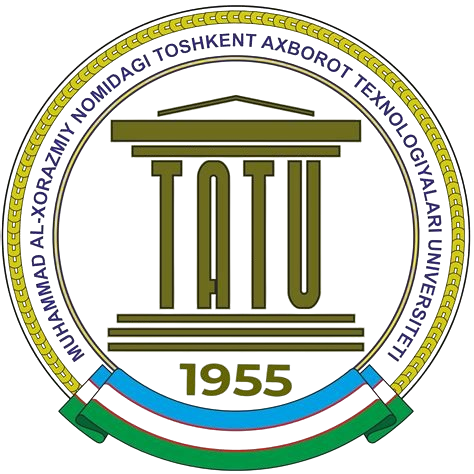
Muhammad al-Xorazmiy nomidagi Toshkent Axborot Texnologiyalari Universiteti (TATU) bugungi kunda mamlakatdagi yetakchi oliy ta’lim muassasalaridan biri hisoblanadi. “TATU raqamlarda” sahifasida keltirilishicha, universitet QS Osiyo reytingida 651–700 o‘rinlarni egallagan va EduRank milliy reytingida 2-o‘rinni band etgan. Hozirda TATUda 29 065 nafar talaba tahsil olmoqda, 6 264 nafar professor-o‘qituvchi faoliyat yuritmoqda. Shuningdek, universitet 375 ta xorijiy oliygoh bilan xalqaro hamkorlik aloqalarini yo‘lga qo‘ygan bo‘lib, bu uning ta’lim sifati va ilmiy salohiyatining yuksak darajada ekanini ko‘rsatadi.
Veb sahifa: www.polito.it
Politecnico di Torino Italiya va Yevropadagi eng qadimiy hamda nufuzli texnik universitetlardan biridir. Muassasa 1859-yilda Muhandislar uchun texnik maktab sifatida tashkil etilgan bo‘lib, keyinchalik muhandislik, arxitektura va sanoat dizayni yo‘nalishlariga ixtisoslashgan politexnika universitetiga aylangan. Bir yarim asrdan ortiq vaqt davomida u ilmiy tadqiqotlar, texnologik innovatsiyalar va oliy texnik ta’limning muhim markaziga aylandi.
Bugungi kunda Politecnico di Torino turli muhandislik yo‘nalishlari, arxitektura, shaharsozlik va dizayn bo‘yicha bakalavriat, magistratura hamda doktorantura dasturlarini taklif etadi. Universitetda o‘n minglab talabalar, jumladan ko‘plab xorijiy talabalar tahsil oladi. Ta’lim jarayoni yuqori malakali professor-o‘qituvchilar va zamonaviy ilmiy laboratoriyalar tomonidan qo‘llab-quvvatlanadi.
Universitet Yevropa va dunyodagi yetakchi texnik oliy ta’lim muassasalari qatorida muntazam ravishda yuqori o‘rinlarni egallab kelmoqda. Ayniqsa, muhandislik va texnologiya sohalaridagi yutuqlari, sanoat bilan mustahkam hamkorligi hamda xalqaro ilmiy tarmoqlar va Yevropa Ittifoqi loyihalaridagi faol ishtiroki bilan tanilgan.
Politecnico di Torino universitetlar, ilmiy markazlar va global kompaniyalar bilan keng qamrovli xalqaro hamkorlikni yo‘lga qo‘ygan. Bu hamkorlik talabalar almashinuvi, qo‘shma diplom dasturlari, innovatsion tashabbuslar va texnologiyalar transferini rivojlantirishga xizmat qiladi. Sanoat bilan yaqin aloqalar amaliy tadqiqotlar, tadbirkorlik va hududiy iqtisodiy rivojlanishga sezilarli hissa qo‘shadi.
Umuman olganda, Politecnico di Torino muhandislik va arxitektura ta’limi sohasida Yevropaning yetakchi oliy ta’lim muassasalaridan biri bo‘lib, boy akademik an’analarni zamonaviy ilmiy tadqiqotlar, innovatsiyalar va global hamkorlik bilan uyg‘unlashtirib kelmoqda.
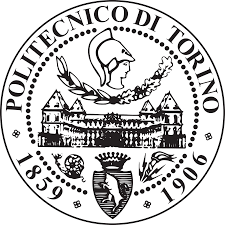
Veb sahifa: www.upm.es
Madrid politexnika universiteti (UPM) Ispaniyadagi eng yirik texnik universitet hamda Yevropadagi nufuzli oliy ta’lim muassasalaridan biridir. Universitet intensiv ilmiy-tadqiqot faoliyati, xalqaro miqyosda tan olingan akademik sifati va milliy hamda xalqaro sanoat bilan mustahkam integratsiyasi bilan ajralib turadi.
Madrid shahri bo‘ylab joylashgan bir nechta kampuslarda qariyb 40 000 talaba tahsil oladi. Universitet tarkibida ko‘plab ilmiy markazlar va institutlar mavjud bo‘lib, ularda ilmiy jamoalar ilg‘or tadqiqotlar olib boradi, yangi bilimlar yaratadi hamda talabalarni o‘z sohalarining eng zamonaviy yo‘nalishlari bo‘yicha tayyorlaydi.
UPM muhandislik va arxitektura yo‘nalishlari bo‘yicha dunyoning eng yaxshi 75 ta universiteti qatoriga kiradi hamda bitiruvchilarning bandlik darajasi bo‘yicha global reytingda eng yaxshi 100 talikdan joy olgan. Davlat universiteti sifatida u BMT tomonidan belgilangan 17 ta Barqaror rivojlanish maqsadlarini amalga oshirishga faol hissa qo‘shadi.
Universitet EELISA Yevropa universitetlari alyansiga rahbarlik qiladi. Ushbu alyans 180 000 dan ortiq talabalar, 16 000 akademik xodim va 11 000 ma’muriy hamda xizmat ko‘rsatish xodimlarini birlashtiradi. Alyans oliy ta’limni rivojlantirish, innovatsiyalarni qo‘llab-quvvatlash va Yevropa jamiyati oldidagi ijtimoiy hamda ekologik muammolarga yechim topishga qaratilgan.
UPM tarkibiga 16 ta maktab, 1 ta fakultet va 1 ta affillangan kollej kiradi. Universitet minglab professor-o‘qituvchilar va tadqiqotchilar tomonidan qo‘llab-quvvatlanadi hamda bakalavriat, magistratura va doktorantura bosqichlarida ko‘plab akkreditatsiyadan o‘tgan ta’lim dasturlarini taklif etadi. Shuningdek, xalqaro qo‘shma diplomlar, talabalar almashinuvi, sanoat bilan hamkorlik, startaplarni qo‘llab-quvvatlash va ilmiy grantlar orqali innovatsiya hamda tadbirkorlik rivojlanadi.
Umuman olganda, Madrid politexnika universiteti muhandislik, arxitektura, ilm-fan va innovatsiyalar sohasida Yevropaning yetakchi markazlaridan biri bo‘lib, texnologik taraqqiyot, barqaror rivojlanish va xalqaro akademik hamkorlikka muhim hissa qo‘shadi.
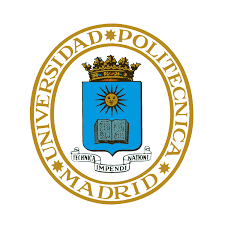
Veb sahifa: www.uevora.pt
Évora universiteti (Universidade de Évora) Portugaliyaning Évora shahrida joylashgan davlat universitetidir. U mamlakatdagi ikkinchi eng qadimiy universitet bo‘lib, 1559-yilda kardinal Enrike (Henry) tomonidan tashkil etilgan va o‘sha yilning aprel oyida Papa Pavel IV tomonidan “Cum a nobis” papalik farmoni orqali universitet maqomi berilgan. Universitet Isoniylar jamiyati (jezuitlar) homiyligida faoliyat yuritgani sababli, Markiz di Pombalning jezuitlarga qarshi siyosati davrida ta’qib ostida qolib, 1779-yilda butunlay yopilgan, ustozlari esa qamoqqa olingan yoki surgun qilingan.
Taxminan ikki yuz yil o‘tib, 1973-yilda Ta’lim vaziri Joze Veyga Siman (José Veiga Simão) qarori bilan eski universitet hududida Évora universitet instituti (Instituto Universitário de Évora) sifatida qayta ochildi. Bu 1970-yillarning boshida Portugaliya oliy ta’limini isloh qilishga qaratilgan siyosatlar doirasida amalga oshirildi. Olti yil o‘tib, 1979-yilda muassasa nomi “Universidade de Évora” (Évora universiteti) deb o‘zgartirildi.
Missiya: Évora universiteti Portugaliya davlat oliy ta’lim tizimiga kiradi. Uning missiyasi quyidagilarni o‘z ichiga oladi: ilmiy va badiiy tadqiqotlar, tajribalar, texnologik hamda gumanitar rivojlanish orqali bilim yaratish; bakalavriat, magistratura va doktorantura dasturlari, maxsus kurslar hamda umrbod ta’lim orqali bilimlarni ommalashtirish va turli qatlamlarga akademik malaka berish; jamiyatga bilim uzatish, innovatsiyalarni rag‘batlantirish, biznes raqobatbardoshligini oshirish, davlat xizmatlarini modernizatsiya qilish hamda ijtimoiy-madaniy taraqqiyotga ko‘maklashish.
Qadriyatlar: Universitet Anri Puankare (Henri Poincaré) ta’riflagan erkin “izlanish (inquiry)” tamoyiliga amal qiladi. Shuningdek, uning asosiy qadriyatlari: inson qadr-qimmatini hurmat qilish; akademik erkinlik; shaxsiy mehnat va merit; vazifalarni bajarishda qat’iylik va mas’uliyat; qaror qabul qilishda demokratiya; ijtimoiy, etnik yoki diniy (konfessional) kamsitishning yo‘qligi.
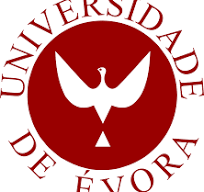
Veb sahifa: www.polito.uz
Toshkent shahridagi Turin politexnika universiteti (TTPU) O‘zbekistondagi notijorat oliy ta’lim muassasasi bo‘lib, 2009-yil 27-aprelda Prezident qarori hamda O‘zbekiston Respublikasi hukumati, Italiyaning Politecnico di Torino universiteti va sanoat hamkorlari o‘rtasidagi kelishuv asosida tashkil etilgan. Universitetning asosiy vazifasi avtomobilsozlik, mexanika, elektrotexnika, qurilish va energetika sohalari uchun Italiya universiteti bilan hamkorlikda ishlab chiqilgan ta’lim dasturlari asosida yuqori malakali mutaxassislar tayyorlashdan iborat.
Universitet muhandislik yo‘nalishlari bo‘yicha bakalavriat va magistratura dasturlarini Politecnico di Torino o‘quv rejalari asosida amalga oshiradi. Darslar qisman italiyalik professor-o‘qituvchilar, qisman esa mahalliy tayyorlangan akademik kadrlar tomonidan olib boriladi. Ta’lim yo‘nalishlari qatoriga mexanika, kompyuter, qurilish va avtomobil muhandisligi hamda magistratura darajasidagi ixtisoslashuv dasturlari kiradi.
TTPU Markaziy Osiyoda shakllangan texnik universitetlardan biriga aylangan. Faoliyatining dastlabki 15 yili davomida 1 500 dan ortiq o‘zbekistonlik talabalar bitirgan, har yili Politecnico di Torino’dan taxminan 60 nafar professor ta’lim jarayonida ishtirok etgan va 2 000 dan ortiq talaba qo‘shma diplom dasturlarida tahsil olgan. 2020-yil ma’lumotlariga ko‘ra, universitetda 1 525 nafar talaba, jumladan xorijiy talabalar ham tahsil olgan bo‘lib, asosiy ta’lim tili ingliz tili hisoblanadi.
Universitet Toshkent shahrida joylashgan zamonaviy kampusga ega bo‘lib, unda ilmiy laboratoriyalar, innovatsion loyihalarni qo‘llab-quvvatlovchi texnopark hamda xalqaro hamkorlik tashabbuslari faoliyat yuritadi. Bu texnologiyalar transferi va sanoat bilan hamkorlikni rivojlantirishga xizmat qiladi. Shuningdek, universitet 19 dan ortiq mamlakatdagi 40 dan ziyod universitetlar bilan hamkorlik qiladi hamda Yevropa Ittifoqi tomonidan qo‘llab-quvvatlanadigan xalqaro ta’lim va ilmiy loyihalarda ishtirok etadi.
Umuman olganda, Toshkent shahridagi Turin politexnika universiteti O‘zbekistonda muhandislik ta’limini modernizatsiya qilish va xalqaro akademik hamkorlikni rivojlantirishning muhim modeli bo‘lib, milliy sanoat hamda hududiy taraqqiyot uchun raqobatbardosh texnik mutaxassislar tayyorlashga xizmat qilmoqda.
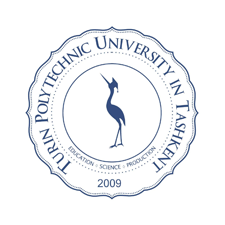
Veb sahifa: www.tiiame.uz
Toshkent irrigatsiya va qishloq xo‘jaligini mexanizatsiyalash muhandislari instituti (TIIAME) O‘zbekistonda irrigatsiya, suv xo‘jaligi, qishloq xo‘jaligi muhandisligi hamda ekologik texnologiyalar yo‘nalishlariga ixtisoslashgan yetakchi oliy ta’lim muassasalaridan biridir. Institut 1923-yilda irrigatsiya va melioratsiya mutaxassislarini tayyorlashga mo‘ljallangan texnik maktab sifatida tashkil etilgan bo‘lib, keyinchalik mamlakatning qishloq xo‘jaligi va suv resurslari sohalarini qo‘llab-quvvatlovchi yirik ilmiy-ta’lim markaziga aylangan.
O‘zining uzoq tarixiy rivojlanish jarayonida TIIAME barqaror qishloq xo‘jaligi, gidrotexnika, yerlarni melioratsiya qilish, mexanizatsiya va qishloq xo‘jaligi energetikasi kabi yo‘nalishlar bo‘yicha milliy ustuvorliklarga mos ravishda bir necha bor tarkibiy o‘zgarish va modernizatsiya bosqichlarini boshdan kechirdi. Bugungi kunda institut suv va agrar tizimlarga oid ko‘plab muhandislik, iqtisodiy hamda ekologik yo‘nalishlar bo‘yicha bakalavriat, magistratura va doktorantura dasturlarini amalga oshirmoqda.
Institutda minglab talabalar yuqori malakali professorlar, fan doktorlari va PhD darajasiga ega mutaxassislar rahbarligida tahsil oladi. Universitet zamonaviy laboratoriyalar, ilmiy tadqiqot markazlari, o‘quv poligonlari, talabalar turar joylari, kutubxonalar va innovatsion infratuzilmaga ega bo‘lib, ilmiy izlanishlar hamda kasbiy tayyorgarlik uchun mustahkam sharoit yaratadi.
TIIAME suv xo‘jaligi, iqlim o‘zgarishiga moslashuv va barqaror qishloq xo‘jaligi yo‘nalishlarida faoliyat yurituvchi xorijiy universitetlar, ilmiy institutlar va xalqaro tashkilotlar bilan xalqaro hamkorlikni faol rivojlantirmoqda. Qo‘shma ta’lim dasturlari, akademik almashinuv va xalqaro ilmiy loyihalarda ishtirok etish institutning global akademik integratsiyasi hamda ilmiy salohiyatini mustahkamlaydi.
Umuman olganda, Toshkent irrigatsiya va qishloq xo‘jaligini mexanizatsiyalash muhandislari instituti suv resurslari, qishloq xo‘jaligi va ekologik barqarorlik yo‘nalishlari uchun yuqori malakali muhandis va mutaxassislar tayyorlashda muhim o‘rin tutib, O‘zbekistonning oziq-ovqat xavfsizligi, ekologik muvozanati va iqtisodiy rivojiga katta hissa qo‘shmoqda.
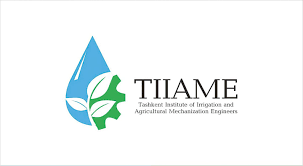
Veb sahifa: www.jizpi.uz
Jizzax politexnika instituti (JizPI) O‘zbekiston Respublikasidagi davlat oliy ta’lim muassasasi bo‘lib, mamlakat sanoat rivoji uchun muhandislik va texnik ta’lim yo‘nalishlarida mutaxassislar tayyorlaydi. Institut 1992-yil 28-fevralda Prezident farmoni va hukumat qarori asosida Toshkent shahridagi yirik texnik oliygohlarning Jizzax filiallari — arxitektura-qurilish, kimyo-texnologiya hamda avtomobil yo‘llari institutlari negizida tashkil etilgan.
Hududda muhandislik ta’limining ildizlari 1977-yilga borib taqaladi. Aynan shu yilda Toshkent politexnika institutining Jizzax umumtexnika fakulteti faoliyati yo‘lga qo‘yilgan. Mustaqillikdan so‘ng ushbu filial mustaqil institutga aylantirilib, yangi fakultet va kafedralar bilan kengaytirildi. Bugungi kunda institut qurilish, kimyo texnologiyasi, transport, energetika va muhandislik iqtisodiyoti kabi yo‘nalishlarda malakali mutaxassislar tayyorlab, hududiy texnik ta’lim markazi sifatida faoliyat yuritmoqda.
Jizzax politexnika instituti sanoat texnologiyalari, fuqaro va bino-inshootlar qurilishi, avtotransport hamda boshqa muhandislik yo‘nalishlarini qamrab olgan bir nechta fakultetlardan iborat. Ta’lim tuzilmasi islohotlar va modernizatsiya jarayonlari asosida shakllantirilgan. Kampus infratuzilmasi qariyb 22 300 m² maydonni egallab, o‘quv binolari, ma’ruza zallari, sport inshootlari va talaba hayotini qo‘llab-quvvatlovchi boshqa ta’lim resurslarini o‘z ichiga oladi.
30 yildan ortiq faoliyati davomida institut ko‘plab muhandislar, arxitektorlar va iqtisodchilarni tayyorlab, O‘zbekistonning markaziy hududidagi muhim ilmiy va ta’lim markazlaridan biriga aylandi.
Umuman olganda, Jizzax politexnika instituti yuqori malakali texnik mutaxassislar tayyorlash, amaliy ilmiy tadqiqotlarni rivojlantirish hamda hududiy ijtimoiy-iqtisodiy taraqqiyotni qo‘llab-quvvatlashda muhim o‘rin tutadi.
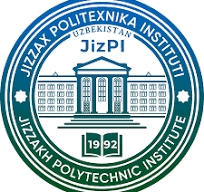
Veb sahifa: www.adu.uz
Andijon davlat universiteti (Zahiriddin Muhammad Bobur nomidagi) O‘zbekistonning eng qadimiy oliy ta’lim muassasalaridan biridir. Universitet 1931-yilda Farg‘ona pedagogika instituti sifatida tashkil etilgan, keyinchalik Andijon pedagogika institutiga aylangan va 1992-yilda O‘zbekiston mustaqillikka erishgach, rasmiy ravishda universitet maqomini olgan.
Bugungi kunda Andijon davlat universiteti 11 ta fakultet va o‘nlab kafedralar orqali filologiya, tabiiy fanlar, tarix, ijtimoiy-iqtisodiy yo‘nalishlar, pedagogika, fizika-matematika, xorijiy tillar, jismoniy madaniyat, san’at, axborot texnologiyalari hamda maktabgacha ta’lim kabi sohalarda ta’lim beradi. 55 dan ortiq bakalavriat va 26 ta magistratura mutaxassisliklari mavjud.
Universitetda 22 000 dan ortiq bakalavriat talabalari va bir necha yuz nafar magistr hamda doktorantlar tahsil oladi. Ularga fan doktorlari va PhD darajasiga ega bo‘lgan yuzlab professor-o‘qituvchilar ta’lim beradi. Shuningdek, muassasa dunyoning 50 dan ortiq hamkor universitetlari bilan xalqaro aloqalarni yo‘lga qo‘ygan, Erasmus+ kabi almashinuv dasturlarida ishtirok etadi hamda talabalar uchun amaliyot, innovatsion ko‘rgazmalar va ilmiy tadqiqotlarda qatnashish imkoniyatlarini yaratadi.
So‘nggi reytinglarga ko‘ra, Andijon davlat universiteti EduRank 2025 reytingida O‘zbekistonda 9-o‘rinni va dunyo bo‘yicha taxminan 6819-o‘rinni egallagan bo‘lib, ilmiy tadqiqot natijalari o‘nlab fan yo‘nalishlarini qamrab oladi.
Umuman olganda, Andijon davlat universiteti O‘zbekistonning sharqiy hududida yirik ta’lim va ilmiy markaz bo‘lib, pedagog kadrlar tayyorlash, ilmiy izlanishlar va xalqaro akademik hamkorlikni rivojlantirishga katta hissa qo‘shmoqda.

Veb sahifa: www.karsu.uz
Qoraqalpoq davlat universiteti (Berdax nomidagi) O‘zbekiston Respublikasining Qoraqalpog‘iston Respublikasidagi yetakchi oliy ta’lim muassasalaridan biridir. Universitet 1976-yilda Nukus davlat pedagogika instituti negizida tashkil etilgan bo‘lib, keyinchalik ko‘p tarmoqli oliy ta’lim muassasasiga aylangan va turli ilmiy yo‘nalishlar bo‘yicha ta’lim berib kelmoqda.
Bugungi kunda universitet tabiiy fanlar, filologiya, tarix, iqtisodiyot, pedagogika, matematika, fizika, kimyo, biologiya, geografiya hamda axborot texnologiyalari yo‘nalishlarida bakalavriat va magistratura dasturlarini amalga oshiradi. Ko‘plab fakultet va kafedralar orqali faoliyat yuritayotgan muassasa Qoraqalpog‘iston va qo‘shni hududlarning ijtimoiy-iqtisodiy rivojlanishi uchun o‘qituvchilar, tadqiqotchilar va mutaxassislar tayyorlashda muhim o‘rin tutadi.
Qoraqalpoq davlat universitetida minglab talabalar tahsil oladi va ularga professorlar, fan doktorlari hamda PhD darajasiga ega ilmiy-pedagogik xodimlardan iborat salmoqli jamoa ta’lim beradi. Universitet ilmiy laboratoriyalar, o‘quv binolari, talabalar turar joylari, kutubxonalar hamda madaniy-sport inshootlari bilan ta’minlangan bo‘lib, ta’lim va tadqiqotlar uchun keng qamrovli akademik muhit yaratadi.
Muassasa xorijiy universitetlar va ilmiy markazlar bilan xalqaro hamkorlikni faol kengaytirmoqda. Akademik almashinuv dasturlari, qo‘shma ilmiy loyihalar hamda ta’limni modernizatsiya qilishga qaratilgan tashabbuslar orqali oliy ta’lim sifatini oshirish va global standartlarni joriy etishga xizmat qilmoqda.
Umuman olganda, Qoraqalpoq davlat universiteti Qoraqalpog‘iston Respublikasining yirik ta’lim, ilmiy va madaniy markazlaridan biri bo‘lib, hududiy kadrlar salohiyatini rivojlantirish, ilmiy tadqiqotlarni kengaytirish hamda O‘zbekistonda xalqaro akademik hamkorlikni mustahkamlashga katta hissa qo‘shmoqda.

Veb sahifa: www.fstu.uz
Farg‘ona davlat texnika universiteti (FSTU) O‘zbekistonda texnik va muhandislik ta’limini rivojlantirishga qaratilgan keng ko‘lamli islohotlar doirasida tashkil etilgan yangi oliy ta’lim muassasasidir. Universitet 2025-yil yanvar oyida Prezident farmoni asosida Farg‘ona politexnika instituti hamda Toshkent axborot texnologiyalari universitetining Farg‘ona filiali birlashtirilishi natijasida tashkil etildi.
2025/2026 o‘quv yilidan boshlab universitetda malaka talablari va o‘quv dasturlari dunyoning eng nufuzli 300 taligiga kiruvchi xorijiy universitetlar ta’lim dasturlariga moslashtirilmoqda. Iqtidorli talabalar uchun xorijiy tillarda ta’lim beriladigan maxsus guruhlar ham tashkil etilmoqda.
Universitet tarkibida ilg‘or muhandislik maktabi hamda innovatsion “spin-off” korxonalar rivojlantirilmoqda. Bu esa yirik sanoat hamkorlari bilan hamkorlikni mustahkamlash, O‘zbekiston sanoatini modernizatsiya qilish va barqaror iqtisodiy o‘sishni qo‘llab-quvvatlashga xizmat qiladi.
Farg‘ona davlat texnika universiteti o‘zining shakllanishiga asos bo‘lgan ta’lim muassasalari an’analarini davom ettirgan holda texnologiya, muhandislik, iqtisodiyot va turdosh yo‘nalishlarda yuqori malakali mutaxassislar tayyorlaydi. Bu jarayon hududiy mehnat bozorini rivojlantirish va innovatsion faoliyatni qo‘llab-quvvatlashga muhim hissa qo‘shadi.
Universitet xalqaro akademik hamkorlikni kengaytirmoqda, jumladan ilmiy stajirovkalar, qo‘shma tadqiqotlar, tajriba almashinuvi va xorijiy universitetlar bilan hamkorlik loyihalarida faol ishtirok etmoqda. Shuningdek, zamonaviy raqamli texnologiyalar va sun’iy intellektni ta’lim hamda boshqaruv jarayonlariga joriy etish yo‘nalishida ishlar olib borilmoqda.
Umuman olganda, Farg‘ona davlat texnika universiteti O‘zbekistonda oliy texnik ta’limni modernizatsiya qilish yo‘lidagi muhim qadam bo‘lib, ta’lim islohotlari, sanoat bilan hamkorlik va xalqaro integratsiyani uyg‘unlashtirgan holda mamlakat iqtisodiy rivoji uchun raqobatbardosh muhandis kadrlarni tayyorlashga xizmat qilmoqda.
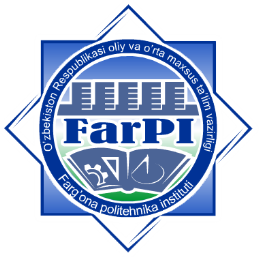
Veb sahifa: www.edu.uz
O‘zbekiston Respublikasi Oliy ta’lim, fan va innovatsiyalar vazirligi mamlakatda oliy ta’lim, ilmiy tadqiqotlar va innovatsiyalar sohasida davlat siyosatini amalga oshiruvchi, tartibga soluvchi hamda strategik rivojlanishni ta’minlovchi markaziy davlat organidir. Vazirlik milliy ta’lim tizimini modernizatsiya qilish, ilmiy salohiyatni mustahkamlash hamda fan, sanoat va iqtisodiyot integratsiyasini rivojlantirishga qaratilgan davlat boshqaruvi islohotlari doirasida tashkil etilgan.
Vazirlik oliy ta’lim muassasalari, ilmiy-tadqiqot institutlari va innovatsion markazlar faoliyatini muvofiqlashtiradi, ta’lim sifati, xalqaro standartlarni joriy etish hamda raqobatbardosh akademik dasturlarni rivojlantirishni ta’minlaydi. Shuningdek, o‘quv dasturlarini modernizatsiya qilish, akkreditatsiya jarayonlari, akademik mobillik va raqamli transformatsiya masalalarini nazorat qiladi.
Vazirlik faoliyatining muhim ustuvor yo‘nalishlaridan biri xorijiy universitetlar, global ilmiy tarmoqlar va xalqaro tashkilotlar bilan hamkorlikni kengaytirishdan iborat. Qo‘shma ta’lim dasturlari, almashinuv tashabbuslari hamda hamkorlikdagi ilmiy loyihalar orqali O‘zbekiston oliy ta’limi va ilm-fanini jahon akademik hamjamiyatiga integratsiya qilish qo‘llab-quvvatlanadi.
Bundan tashqari, vazirlik innovatsion ekotizimlarni rivojlantirish, texnologiyalar transferi va ilmiy natijalarni tijoratlashtirishni rag‘batlantiradi. Universitetlar, ilmiy muassasalar va sanoat o‘rtasidagi hamkorlikni kuchaytirish orqali milliy iqtisodiy o‘sish, texnologik taraqqiyot hamda yuqori malakali kadrlar tayyorlashga xizmat qiladi.
Umuman olganda, Oliy ta’lim, fan va innovatsiyalar vazirligi O‘zbekistonda ta’lim, fan va innovatsiya siyosatining strategik yo‘nalishlarini belgilashda muhim o‘rin tutib, barqaror rivojlanish, global raqobatbardoshlik va mamlakatning intellektual hamda texnologik salohiyatini yuksaltirishga xizmat qilmoqda.
